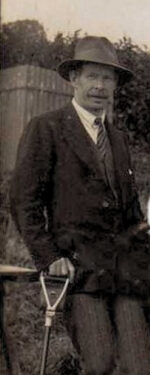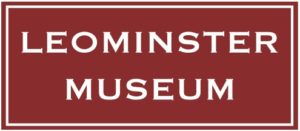Children of the Stream and the Field
This event was held in Leominster Priory, on 6th September 2014. The programme consisted of three parts – Act One of ‘Memories’ by Geoffrey Bright, read by members of Leominster Town Cadets and the Leominster Playhouse group; ‘Back to the Garden’ by The Village Quire; and ‘Hanging on the Old Barbed Wire’ by Leominster Morris.
The title of the event was taken from a poem written by Sir John Stanhope Arkwright, local landowner, and MP for Hereford just before the First World War.
OF THE MEN OF AN INLAND COUNTY
Theirs was no song of the Sea to hasten the veins in their courses,
Theirs was no call of the deep to quicken the pulse of the blood,
They had not sported as children with the manes of the wild white horses,
Or watched the adventurous ships go out on the ocean flood.
Children were they of the stream and the field, of the hill and the forest;
Yet were they one at the call with the rest of their resolute race
Fearless they flung them to battle wherever the need was the sorest.
Yielding to none in the pride of the first and the perilous place.
We will remember them when the sun rises up, and at even,
Long as the winds of the West shall sing through the hills of the Free;
Long as the stream shall flow, and Wye go down to the Severn,
Long as the tide shall roll and Severn sweep to the Sea.
Sir John Stanhope Arkwright (1872 – 1954)
The evening was attended by a packed audience of 240 people. Comments afterwards included:
- “Well done. Thank you. Good to see young/old & all involved.”
- “Fine and touching event. Quire great. Morris amazing.”
- “Congratulations to everyone involved – especially putting all the material together”
- “I for one cannot think of a more beautiful tribute to the men of Leominster who fought and died than that made by the Morris Men. I and many others were moved to tears by it. Congratulations on organising such a wonderful, beautiful evening…”
- “Children of the Stream and the Field’ yesterday evening at the Priory was both sensitive and entertaining and I thought the adeptness of the young cast did much towards an appreciative audience. Thank-you.”
- “[We] thought it was amazing. And how good to see so many people there. The Morris dance at the end was incredibly moving – what a sensitive idea. All very remarkable….”
- “Congratulations on the success of Rifles and Spades last night. The Village Quire, especially those songs by Dave Newell, were amazing, and the use of the photos very appropriate. As for the Morris, one of the most affecting things I’ve seen and heard in a long time – real shivers down the spine stuff.”
- “I thought that the whole evening was very thought-provoking & moving. Very well done to all…. for your…. involvement in organizing such a special event which I’m sure will never be forgotten by those of us who were there – nor will the sacrifice made by all the brave souls who never returned from that terrible war.”
‘Memories’
In the decade after the end of the First World War, many of the soldiers who returned to Leominster found settling back into civilian life a difficult process – as indeed was the case across the country. The harsh economic conditions prevailing in the 1920s made it hard for many veterans to find work, and there was real financial hardship. In response, the Leominster branch of the British Legion decided to raise funds by putting on a play. They first applied for permission to perform the 1928 drama ‘Journey’s End’ by RC Sherriff, but were told that it had not yet been licensed for amateur performance. Instead, they turned to Geoffrey Bright, a local man, published poet, and himself a Great War veteran, and asked him to write a play for them. His response was the play ‘Memories’, which was performed in Leominster, Hereford, and elsewhere to great acclaim in 1930, 1931 and 1932.
Since then, the play has not been regularly performed in Herefordshire. Although Leominster Museum held a souvenir programme for a performance of the play in Hereford Town Hall in November 1930, it did not have a copy of the script of the play. In 2014 a search was begun and, with the help of Mr Bright’s family, a script was rediscovered, which enabled the reading of Act One.

‘Back to the Garden’
This was a new musical story of life and hope in the trenches of war-torn France, from the letters of Corporal William Bevan, soldier and gardener. In the Herefordshire Archive and Record Centre there is a large collection of papers which belonged to Sir John Stanhope Arkwright (1872-1954), MP for Hereford 1900 – 1912. Included among them is a remarkable bundle of letters written by William Charles Bevan. Research has revealed that he was born in Ivington on the 15th of May 1886. He grew up to become a gardener, and by 1911, he was working for Sir John at Lyonshall. Later, he occupied the position of Head Gardener at Kinsham Court. Once at the front Bevan corresponded with his employer, Sir John. Bevan’s letters to Sir John are a wonderful blend of horticulture and heroism. Bevan’s dearest wish is to return home to all he holds most dear and get Back to the Garden. Luckily, his wish was granted. Bevan did survive the War, and returned to Kinsham, where he worked for many more years. He finally died in Hereford in 1974.
The Village Quire subsequently developed Back to the Garden into a full-length production for their 2015 season.
‘Hanging on the Old Barbed Wire’
There appears to have been a Morris side in Leominster in the early 20th century that stopped when the local men began to join up to fight in the Great War. It is believed that the only member of the side to survive was the musician, who may have been called Trill. The dance performed tonight was the idea of a member of the Morris, Tim Hawkins, as a tribute to their predecessors of 100 years ago. The dance itself shows the men whistling as they march off to war, building the barricades, fighting in close combat and then falling and fading away leaving just the musician still playing. The first tune used was “Goodbye Dolly Gray”, from a song written during the Boer War, but widely used during the Great War; the second was “Hanging on the Old Barbed Wire”, a private’s lament for his lot in comparison with that of his superiors.

